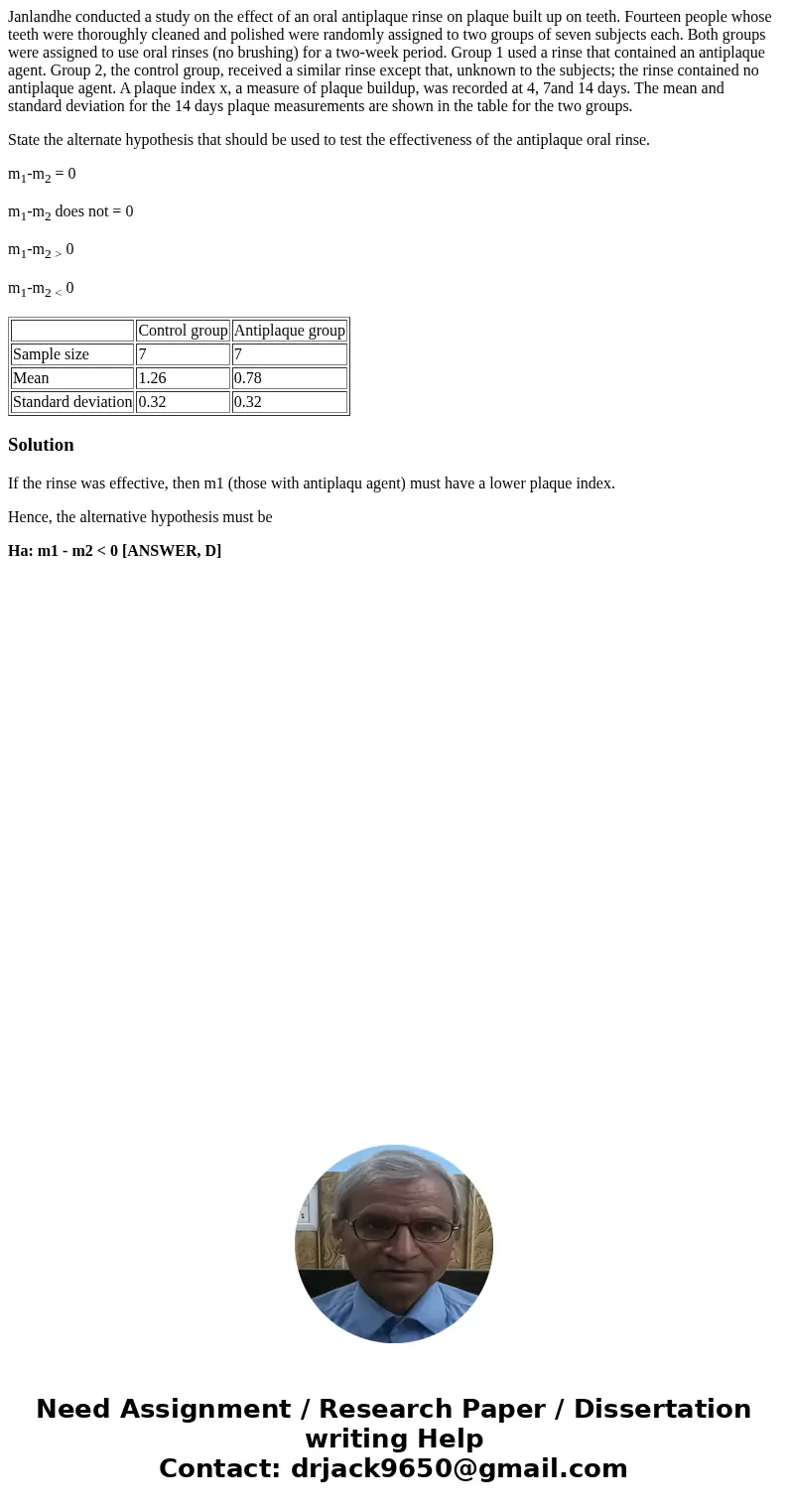Janlandhe conducted a study on the effect of an oral antipla
Janlandhe conducted a study on the effect of an oral antiplaque rinse on plaque built up on teeth. Fourteen people whose teeth were thoroughly cleaned and polished were randomly assigned to two groups of seven subjects each. Both groups were assigned to use oral rinses (no brushing) for a two-week period. Group 1 used a rinse that contained an antiplaque agent. Group 2, the control group, received a similar rinse except that, unknown to the subjects; the rinse contained no antiplaque agent. A plaque index x, a measure of plaque buildup, was recorded at 4, 7and 14 days. The mean and standard deviation for the 14 days plaque measurements are shown in the table for the two groups.
State the alternate hypothesis that should be used to test the effectiveness of the antiplaque oral rinse.
m1-m2 = 0
m1-m2 does not = 0
m1-m2 > 0
m1-m2 < 0
| Control group | Antiplaque group | |
| Sample size | 7 | 7 |
| Mean | 1.26 | 0.78 |
| Standard deviation | 0.32 | 0.32 |
Solution
If the rinse was effective, then m1 (those with antiplaqu agent) must have a lower plaque index.
Hence, the alternative hypothesis must be
Ha: m1 - m2 < 0 [ANSWER, D]

 Homework Sourse
Homework Sourse